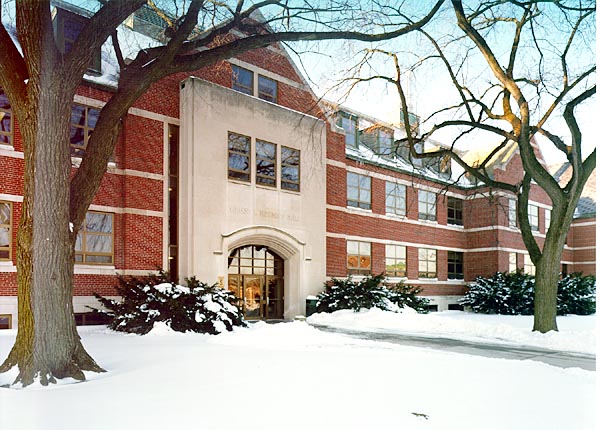
SERVICESArchitectural / Engineering
CONSTRUTION COST$43 Million
START / COMPLETE1995 - 1998
SIZE200,000 + s.f.
|
The "Anthony Hall Complex," built in 1956, is the primary main campus facility for the Department of Animal Science and the Department of Food Science and Human Nutrition. Achieving this initiative necessitated the modernization and expansion of research and instructional facilities at Michigan State University that are fundamental to the future successful expansion of Michigan's animal agriculture. This achievement also required the services of an expert architectural/engineering firm like BEI.
The interior of the Anthony Hall component was completely "gutted" and reconstructed exclusive of the auditoriums and toilet rooms. The research laboratories were consolidated on the basement and the second floor, and replanned to be generic in size to maximize flexibility. In order to make this arrangement operate efficiently, we moved the classrooms and class labs to the first floor, where the auditoriums and administrative offices are located, such that all the high traffic functions are now located in the most accessible area of the building. Also, the facility offices have been grouped and located closer to the occupants teaching and research functions.
The mechanical, electrical and telecommunication systems were completely replaced. Air conditioning, supplemental perimeter heating and new ventilation were installed to meet the environmental needs of the occupants and research activities, a fire suppression was added, and all domestic and specialty piping systems were replaced. Likewise, electrical systems were replaced including new lighting, power, and telecommunication systems, fire alarm and detection systems, and emergency power generation for vital building systems. The Dairy Plant required far less function replanning than did Anthony Hall. However, the facility was operationally and technologically obsolete in terms of the modern processing plant needed to train and update the managers of Michigan dairy processing industries.
|
